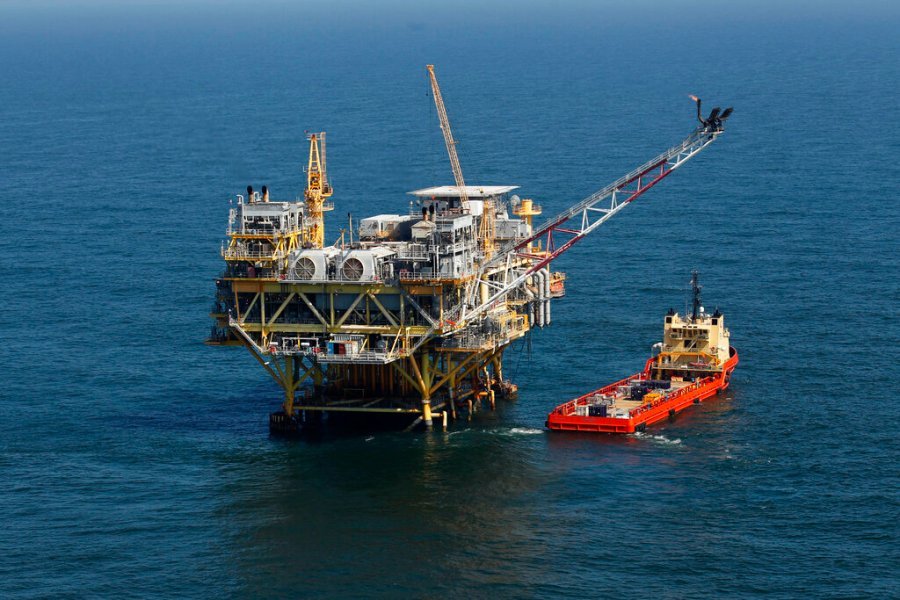
From Gulf Coast to the waters off Virginia, offshore energy is powering our economy and strengthening national security. But if we want this momentum to last through future administrations, we must fix our broken permitting system.
Right now, companies want to invest across a range of technologies: oil and gas, wind, carbon capture, hydrogen, nuclear, geothermal and deep-sea mining. These projects represent billions in private investment, hundreds of thousands of jobs and the next generation of U.S. energy leadership.
We need bipartisan, durable and foundational permitting reform that protects U.S. energy leadership, provides legal certainty and ensures progress survives as presidents change.
To pass in the Senate, we must clear the 60-vote cloture threshold. That means Republicans and Democrats must act together. Fortunately, there is broad agreement that the current system is broken and reform is overdue.
Although the National Environmental Policy Act was passed with good intentions, it is now causing long delays. Administrative reviews and litigation turn what should be months of analysis into years of paralysis. The bottom line: projects stall, costs rise, investment dries up and America loses ground.
According to research by Wood Mackenzie, long-planned deepwater projects in the Gulf are expected to add 300,000 barrels of oil per day in 2025 and 250,000 in 2026, critical to offset declines in onshore production. These projects often take a decade to plan, require billions in capital, and involve investments and jobs that reach all 50 states.
But both time and money depend on regulatory certainty. When that slips, so can production and investment in the U.S.
With a carbon intensity 46 percent lower than the global average, American oil barrels from the Gulf have among the strongest environmental performance in the world, outperforming Russia, China, Iran and virtually every other region. That is precisely the kind of domestic production that both sides of the aisle should support.
For Republicans, offshore energy is also a story of industrial revitalization. More than 35 vessels have already been built for U.S. offshore wind, with another 23 under construction or announced with over $1.8 billion in American shipbuilding contracts supporting steelworkers, welders and mariners across the country.
Nearly $3 billion in port upgrades are underway along the East Coast and Gulf Coast to stage, fabricate and launch these projects. In Virginia, the Port Authority has invested $233 million to modernize 72 acres of the Portsmouth Marine Terminal and 1,500 feet of wharf space for offshore wind components, precisely the kind of infrastructure that anchors an economy.
These aren’t theoretical investments. They are real, made-in-America projects rebuilding our industrial base, reinforcing supply chains and strengthening maritime capabilities.
Meanwhile, energy demand is rising, not just from population growth, but from the AI revolution. In the U.S., data centers are projected to drive nearly half the growth in electricity demand between now and 2030. By then, AI-powered data processing will consume more electricity than manufacturing all energy-intensive goods combined, including steel, cement, aluminum and chemicals.
Virginia leads the nation in data centers, with a dense cluster in Northern Virginia known as “Data Center Alley.” These facilities are central to America’s AI economy, and they depend on a stable, scalable power supply to grow. We must move quickly to ensure Americans have the power to meet surging electric demand. Offshore wind is well-positioned to provide this important energy source at this opportune moment.
Offshore energy is not a zero-sum game; it’s additive. We need all forms of energy. Oil and gas projects in the Gulf can produce for decades, while offshore wind will continue to ramp up and build a reliable supply for other coastal areas. Hydrogen, carbon capture, critical minerals, and other next-generation technologies will depend on offshore infrastructure and expertise built over generations.
But all of it depends on fixing permitting.
The bipartisan Streamlining Procurement for Effective Execution and Delivery (SPEED) Act is a step in the right direction. It’s a chance to streamline permitting, which is especially important offshore because the federal government has full regulatory authority over every project.
Offshore energy is one of the most transformative, job-creating sectors in the U.S. economy. If we want this engine of progress to keep running, we need a permitting system built for the 21st century. Energy security is national security, and permitting reform that advances all forms of offshore energy will help secure that strategic objective.
We have a bipartisan imperative to act. Smart, targeted reform will unlock offshore energy investments that generate billions in revenue, strengthen energy security, support high-wage jobs and ensure American leadership in a competitive global energy landscape.
Jen Kiggans represents Virginia’s 2nd District in Congress and Erik Milito is president of National Ocean Industries Association.


